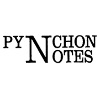Abstract
The number and variety of critical responses to Gravity's Rainbow have been extensive, yet often these responses have been traditional in their critical approaches. However, Pynchon wrote Gravity's Rainbow during the time "poststructuralism" and "deconstruction" were fast becoming forces in literary production and reception. Pynchon's novel posits and amalgamates endless structures (narrative, existential, scientific, historical, etc.) that often fall apart during the act of reading--unless the reader props these crumbling structures with an extratextual, totalizing structure. Most of the essays contained in this issue of Pynchon Notes do not seek to prop up particular structures; instead, they seek to explore some of the deconstructive narratives Pynchon has given play within the zone of his text. Whether Pynchon's sense of structures that come-and-go derives from some awareness of deconstruction is not the point, but as an activity of reading, deconstruction does offer Pynchon's readers a new perspective on the text.
How to Cite:
Duyfhuizen, B., (1984) “Deconstructing Gravity's Rainbow Introduction”, Pynchon Notes 14, 3-6. doi: https://doi.org/10.16995/pn.397
Downloads:
Download PDF
822 Views
367 Downloads
2 Citations

